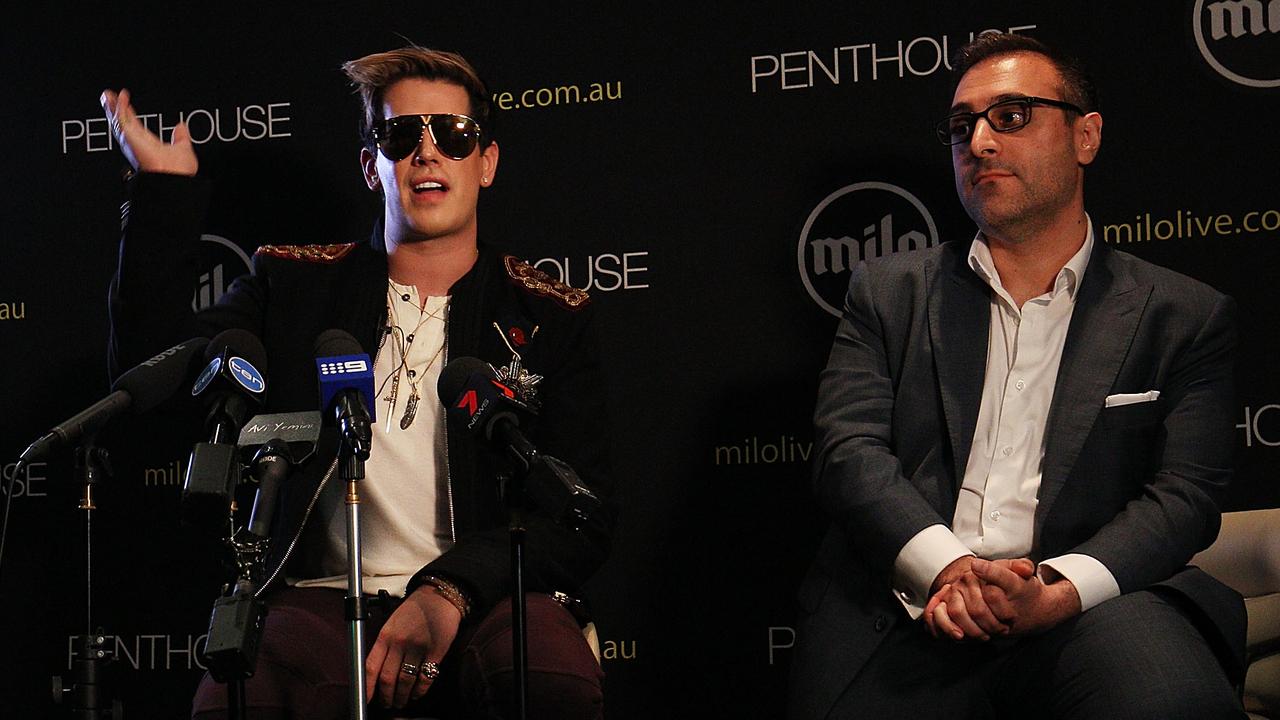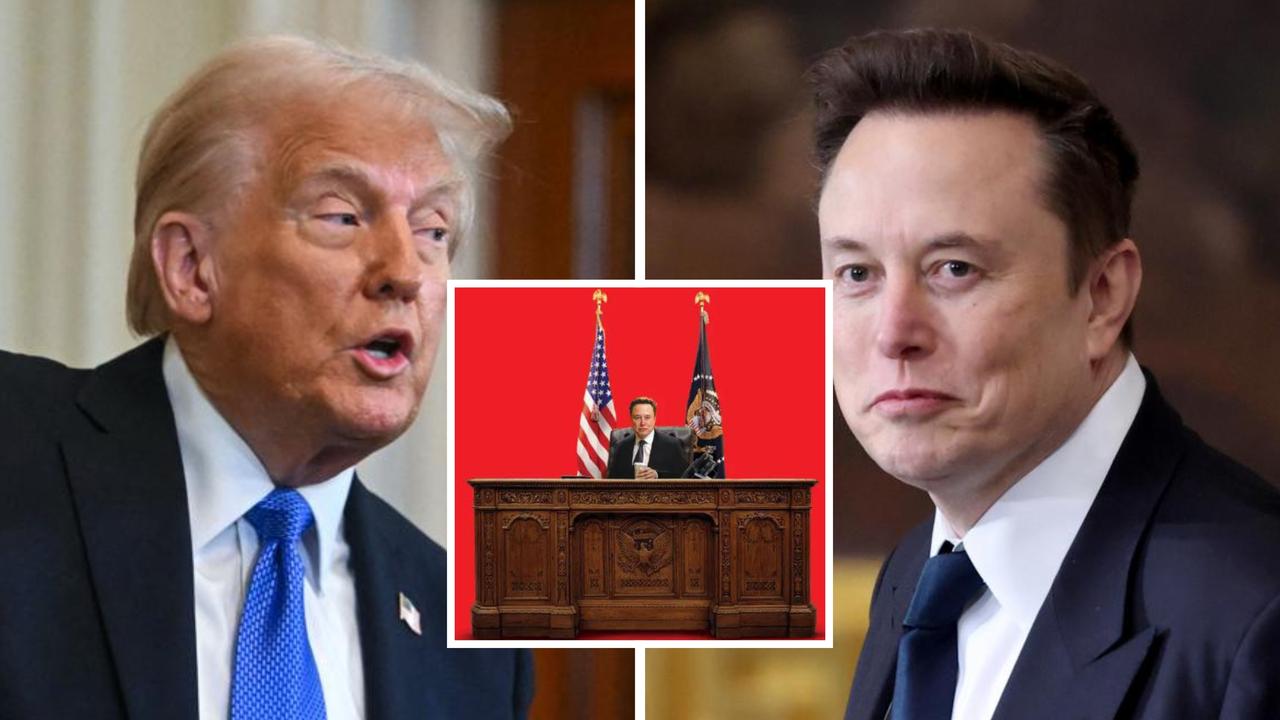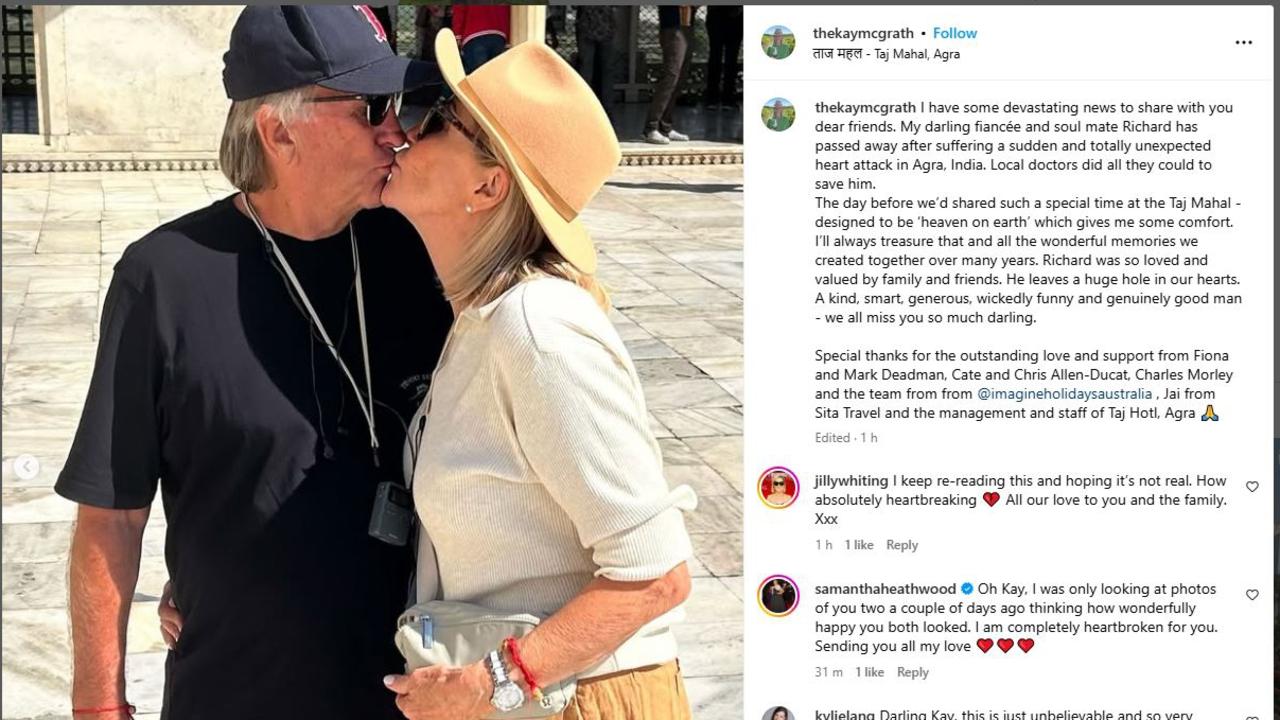Penthouse calls for police investigation into Home Affairs leak of Gavin McInnes visa decision
The organiser of Gavin McInnes’ scuppered Australian tour says he will appeal a decision to deny the right-wing speaker a visa.

The organiser of Gavin McInnes’ scuppered Australian tour is calling on police to investigate immigration authorities for allegedly informing media the right-wing commentator’s visa had been denied before the applicants were notified.
Penthouse Magazine publisher Damien Costas said this week he had instructed his legal team to refer the Home Affairs Department to the Australian Federal Police over “what can only be described as a blatant breach of privacy and policy”.
The ABC reported last Friday afternoon that Home Affairs had blocked the Proud Boys founder’s visa over concerns about his “extreme views and promotion of violence”. McInnes later told news.com.au he found it “interesting that the media found out before our lawyers did”.
“Fake news truly trumps the justice system in Australia — and in America for that matter,” he said in a text message.
In a media release, Costas said it had “become clear that the media was alerted to the outcome of the application by someone within the department with knowledge of the decision, in a clear case of what can only be described as collusion between the ABC and the Department of Home Affairs”.
The decision to deny McInnes a visa was finalised at 5:22pm and emailed to their legal team at 5:23pm. The ABC’s story was published at 5:41pm. “This is scary stuff,” he said.
“Employees of the department are not allowed to comment on individual cases. It’s clear that the journalist knew before we did, and frankly, that is of grave concern — not only to other conservative voices looking to come to this country, but to every single citizen of Australia.
“This is the Department of Home Affairs, the department that is responsible for the border security of this country and I, for one, find it astounding that ideological politics is more important to some public servants than the privacy of an individual or the security of the nation.”
Costas said his legal team had identified breaches of the Privacy Act, the Australian Public Service Code of Conduct and the Crimes Act as a result of the alleged leak.

They point to section 70 of the Crimes Act, which makes it an “offence for a commonwealth officer to publish or communicate (except to an authorised person) any fact or document which comes to their knowledge or possession by virtue of being a commonwealth officer, and which it is their duty not to disclose”.
“On this basis, a complaint will be made to the Australian Federal Police for their investigation and we will be appealing the decision taken last Friday,” Costas said.
A spokeswoman for Home Affairs said, “As has consistently been stated in reference to this individual, the Department does not comment on individual cases.”
The AFP has been contacted for comment.
It’s understood that despite the high-profile campaign calling for McInnes’ visa to be denied, including a Change.org petition and letters from the Greens and Labor, Immigration Minister David Coleman was not involved in the decision.
Fellow right-wing provocateurs Milo Yiannopoulos and Lauren Southern, whose recent Australian tours were marred by protests, were ultimately granted visas but McInnes’ involvement in a self-described violent “gang” was seen as a step too far.
Activists leading the charge had leaned heavily on a report by The Guardian, citing a document from Washington state police, that McInnes’ far-right men’s club had been listed as an “extremist group with ties to white nationalism” by the FBI.
Proud Boys members regularly engage in street brawls with members of left-wing extremist group Antifa, who are classified by the Department of Homeland Security as “domestic terrorists”.
The FBI this week denied the earlier report, however, saying it had not designated the Proud Boys as an extremist group and never intended to do so when it briefed Clark County police, which produced the internal memo suggesting otherwise.
“We do not intend and did not intend to designate the group as extremist,” FBI special agent Renn Cannonhe told Oregon media on Tuesday, saying rather it “tried to characterise the potential threat from individuals within that group”.
“I can see where Clark County representatives came to that conclusion,” he said. “That was not our intention. That’s not what we do. We will not open a case if someone belongs to Antifa or even the Proud Boys. There has to be a credible allegation or a threat of violence before someone opens a case.’’
In a video last month, McInnes announced he was quitting the Proud Boys “in all capacities, forever”, in response to legal advice that it would help “alleviate sentencing” for members facing assault and riot charges in New York.




